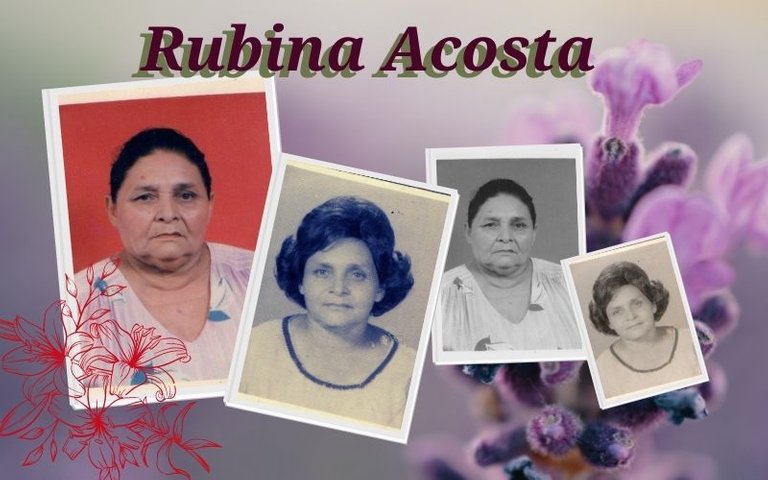
El FALLECIMIENTO DE MI MADRE
Hablar sobre la muerte de un familiar es una tarea que resulta difícil por la carga emocional que despierta en quien la escribe o la relata. Con este post quiero expresar un testimonio para conocimiento de nuestra familia y que a la vez, sirva de motivación para aquellos lectores que tienen la intención de escribir sobre el tema pero no se han atrevido a dar el paso. No es fácil porque implica revivir situaciones que supuestamente ya se habían superado..
La muerte de mis padres fue muy traumática tanto para ellos como para la familia. En el artículo anterior escribí sobre el fallecimiento de Mi padre, José Manuel Rondón, quien murió como consecuencia de un golpe mortal y traicionero que le propinó una vaca por la espalda, cuando él caminaba tranquilo, de manera descuidada, confiado, ensimismado en sus pensamientos. El falleció el 23 de noviembre del año 1998.
Mi madre, Rubina del Carmen Acosta Rodríguez falleció el 21 de noviembre del año 2018 después de padecer por cinco años de una enfermedad que al final la inmovilizó completamente. Los últimos meses no podía ni siquiera sentarse en la cama. Durante estos años solo la pude visitar una vez, pues yo tenía en la casa a mi hija Marisela afectada por la miastenia gravis total, que es una enfermedad autoinmune, que inmoviliza al que la padece. Cuando mi hija manifestó una mejoría importante, fue que pude visitar a mi madre en la ciudad de Caracas y yo vivo en San Cristóbal, estado Táchira.

El día que ella falleció tuve una experiencia inolvidable. Después de darle la medicina a mi hija Marisela y hacerle la terapia respiratoria, me retiré para la sala y me senté a llorar. El reloj ya había anunciado las doce de la noche. Hubo un momento que sentí un deseo apremiante de pararme. Lo hice y en ese momento tuve la sensación de estar recibiendo un abrazo yo respondí con otro abrazo. Me imaginé que era mi madre que venía despedirse de mí ya que yo no pude hacerlo. Pedí su bendición, luego le pedí perdón y también la perdoné. Ese abrazo duró más de treinta segundos y creo que ella lloró conmigo.
Cuando desapareció la sensación del abrazo, me volví a sentar. Enseguida me inundó una hermosa tranquilidad acompañada de una gran fortaleza. Empezaron a aparecer en mi mente bonitas escenas con mi madre de protagonista. Cuando vivimos en el Fundo La Mapora: cuando íbamos de visita donde la familia Arévalo, cuando ellos venían a nuestra casa. Cuando nos visitaba nuestro abuelo José Marcelino Acosta, la visita de su hermana Olimpia con sus hijos e hijas y su esposo Jorge Vivanco. Cuando nos fuimos para el pueblo. Sus recomendaciones para nuestro primer día de clases. Vivencias de cuando vivimos en Guasdualito y en Barinas.
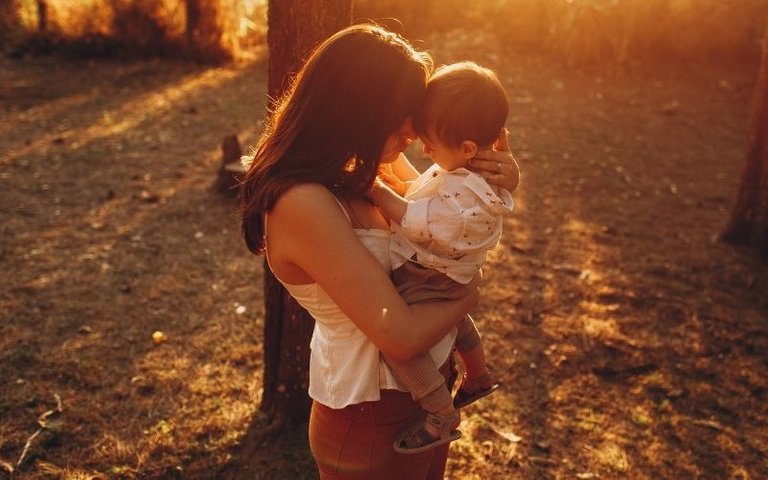
Motivado a la enfermedad de mi hija, mi vida cambió completamente, en el sentido que tenía que permanecer en la casa por si se presentaba una emergencia, como muchas veces ocurrió. Mi presencia le daba un poco mas de seguridad a mi hija. Otra causa, por la que no viajé, fue el deterioro del transporte extraurbano. Yo lloraba por mi hija viéndola sufrir por esa terrible enfermedad y por mi madre ante la impotencia de no poder visitarla y el dolor se incrementaba cuando ella me preguntaba, cuando hablábamos por teléfono:
-¿Cuándo viene, hijo?
Mi madre desde el momento que cayó enferma estuvo al cuidado de mi hermana Nancy que es la hija mayor de las hembras y de mi hermana Elizabeth Coromoto que era la hija menor, hoy fallecida. Ella no la visitaba todos los días pero si la llamaba mañana y tarde estaba pendiente de ella. Su apartamento queda como a tres cuadras del edificio Baralt donde vivía mi madre. Las otras dos hijas la visitaban esporádicamente, pues vivían en otros estados: María Anastasia en San Carlos y Marlenis Violeta en Barinas. El hijo menor de los varones vive en Guacara, estado Carabobo, tampoco la visitaba asiduamente, por el problema del transporte.
La vez que yo la visité, esa semana, ayudé a mi hermana en la atención de mi madre. Para ese tiempo ella se podía parar, no caminaba pero si se paraba agarrada de alguien o algo. Para bañarse se sentaba en la silla de ruedas y la conducíamos al baño y allí se sentaba en la silla especial para el baño. Después que la bañaban y la secaban volvía a la silla de ruedas hasta la cama.

Mi madre era una mujer muy blanca por falta de sol y ejercicio la piel se le puso muy sensible. Si uno la apretaba fuerte se le hacían morados en la piel. Además era bastante acuerpada y pesaba mucho. Una vez se le cayó a mis hermanas, es decir, se les rodó de la silla y no pudieron levantarla y tuvieron que pedir ayuda a los Bomberos para poderla sentar. Nancy muy delgada y Elizabeth delgada y pequeñita. Afortunadamente mi hermano José Mercelino le consiguió una cama clínica y facilitaba cambiarla de posición.
Cuando mis padres deciden separarse, mi madre, mis hermanas y yo nos fuimos para Barinas atendiendo al llamado de su familia. Al poco tiempo de haber llegado nos dimos cuenta que la realidad que le pintaban a mi madre en las cartas que le mandaban era muy diferente. Después de haber dado a luz a mi hermano Franklin Manuel, antes de cumplir la dieta, tuvimos que mudarnos para una habitación que alquiló mi madre, por un pleito que propició una tía, nos corrió de la casa materna. Recuerdo que la primera noche dormimos en el piso sobre una cobija. Después en colchonetas. Teníamos nuestras hamacas pero no había donde colgarlas. Para cocinar utilizaba la cocina y los utensilios de la dueña de la casa.
La situación económica se puso bien difícil cuando se agotaron los pocos recursos que tenía mi madre. Ante esta situación, llegó a un acuerdo con mi abuela y el resto de hermanas que vivían en la casa para regresar, pues ella tenía que salir a trabajar para ganar el sustento de sus hijos y contribuir con el mantenimiento de la casa. De nuevo en la casa materna siempre fuimos aceptados por todos. La tía del pleito se había ido a trabajar a un hato.
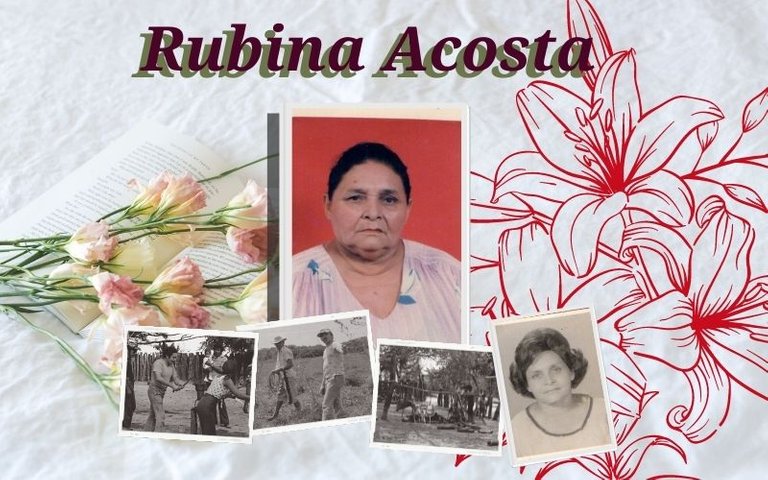
Mi madre trabajó en varias casas de familia, en un restaurant chino. También en un hato. En una oportunidad mi madre autorizó que me entregaran veinte bolívares que necesitaba y la esposa del dueño el hato cuando fueron arreglar cuentas le dijo a mi madre que me había dado una cantidad mayor. A mí me pareció una injusticia y cuando le manifesté que le iba a reclamar me dijo.
– No hijo, que Dios se encargue de eso.
En ese momento se desató en mí un diálogo interno motivado por lo que consideraba una injusticia. Me preguntaba: ¿Qué necesidad tiene esa señora que posee tantos bienes y dinero que Dios le imponga un castigo por actuar de esa manera? Si las personas se hacen ricas quitándoles a sus trabajadores significa que los bienes y dinero que dicen tener no son de ellos es de otros, que se lo apropiaron indebidamente. ¿Será por eso que hay personas que se acuestan millonarias y amanecen arruinados? Yo prefiero acostarme y amanecer millonario, me dije.
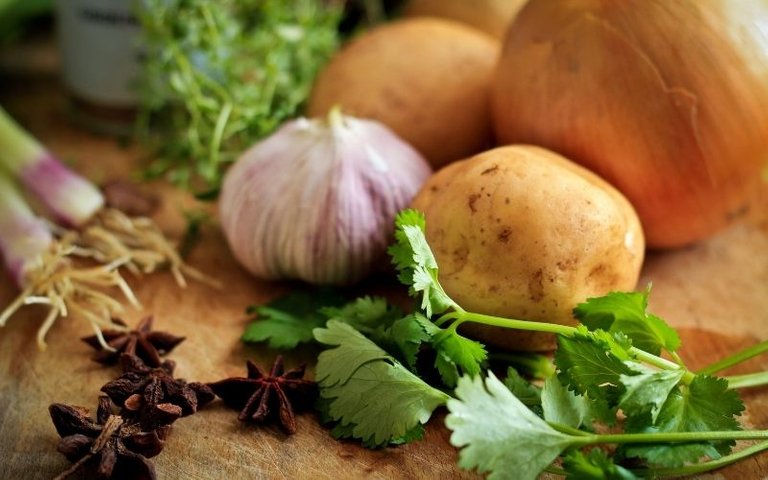
Una prima de mi madre que vivía en Maracay la mandó a llamar y le consiguieron trabajo en Telares Maracay, donde trabaja su esposo. De Maracay viajó a Caracas y se reunió con su hermana menor y una sobrina que ya estaban ubicadas y empezó a trabajar en el Hospital Clínico Universitario. Cuando su padre José Marcelino enfermó, viajó a Barinas a buscarlo y se lo llevó para Caracas y lo hospitalizó donde trabajaba, allí vivió sus últimos días. Después consiguió trabajar medio tiempo en la Casona. Cuando le dieron el cargo de ayudante de cocina renunció al hospital y se dedicó a tiempo completo en la Casona, luego paso a Miraflores hasta que se jubiló.
Mi madre conoció personalmente a presidentes como Caldera, Carlos Andrés Pérez, Luis Herrera y Jaime Lusinchi, Se jubiló recién llegado al poder Hugo Chávez. Ella me contó que en diciembre siempre les regalaban una cesta bien surtida. Cuando llegó Chávez la cesta navideña desapareció. El primer año les dieron tres o cuatro cosas. ¿Se repitió lo de la señora del hato?
Mi madre se caracterizó por ser una mujer, además de trabajadora, cariñosa, muy servicial, buena amiga y muy solidaria con la familia. Ella aprendió a coser por si sola. Cuando vivíamos en la Mapora les cocía a todas las mujeres de la zona, también a sus hermanas y a las hijas. A mí me hizo dos liquiliques y varios pantalones. Cuando nos fuimos para Barinas yo llevaba como ropa especial los dos liquiliques que lucia con orgullo. Dos de sus hijas heredaron y ejercieron el arte de la costura de manera autodidacta como ella. Marlenis montó una fábrica de ropa para damas en Caracas y Nancy cosía en su apartamento para distinguidas damas de la misma ciudad.
Mi madre no dejó bienes ni riquezas, pero si un legado de valores representados en dulzura, amabilidad, fortaleza, firmeza, respeto, responsabilidad, solidaridad, gratitud. Con ellos no se come ni se compra alimentos, pero al aplicarlos nos ayudan a desempeñarnos y vivir armónicamente en sociedad.

LLegaste hasta aquí, gracias por leerme
Pronto la continuación


MY MOTHER'S DEATH
Talking about the death of a family member is a difficult task because of the emotional charge it awakens in those who write or relate it. With this post I want to express a testimony for the knowledge of our family and at the same time, serve as motivation for those readers who intend to write about the subject but have not dared to take the step. It is not easy because it implies reliving situations that were supposedly already overcome...
The death of my parents was very traumatic both for them and for the family. In the previous article I wrote about the death of my father, José Manuel Rondón, who died as a result of a deadly and treacherous blow from a cow in the back, when he was walking calmly, carelessly, confidently, engrossed in his thoughts. He passed away on November 23, 1998.
My mother, Rubina del Carmen Acosta Rodriguez passed away on November 21, 2018 after suffering for five years from an illness that finally immobilized her completely. The last few months she could not even sit up in bed. During these years I could only visit her once, because I had at home my daughter Marisela affected by myasthenia gravis totalis, which is an autoimmune disease, which immobilizes the sufferer. When my daughter showed a significant improvement, I was able to visit my mother in the city of Caracas and I live in San Cristobal, Tachira state.

The day she passed away I had an unforgettable experience. After giving medicine to my daughter Marisela and giving her respiratory therapy, I went to the living room and sat down to cry. The clock had already struck midnight. There was a moment when I felt an urgent desire to stand up. I did and at that moment I had the sensation of receiving a hug and I responded with another hug. I imagined it was my mother coming to say goodbye to me since I was unable to do so. I asked for her blessing, then I asked her forgiveness and I also forgave her. That hug lasted more than thirty seconds and I think she cried with me.
When the feeling of the embrace wore off, I sat back down. I was immediately flooded with a beautiful tranquility accompanied by great strength. Beautiful scenes with my mother as the protagonist began to appear in my mind. When we lived in Fundo La Mapora: when we went to visit the Arevalo family, when they came to our house. When our grandfather José Marcelino Acosta visited us, the visit of his sister Olimpia with her sons and daughters and her husband Jorge Vivanco. When we left for town. His recommendations for our first day of school. Experiences when we lived in Guasdualito and in Barinas.

Because of my daughter's illness, my life changed completely, in the sense that I had to stay at home in case of an emergency, as it happened many times. My presence gave my daughter a little more security. Another reason why I did not travel was the deterioration of the extra-urban transportation. I cried for my daughter, seeing her suffer from that terrible disease and for my mother at the impotence of not being able to visit her and the pain increased when she asked me, when we talked on the phone:
-When is she coming, son?
My mother, from the moment she fell ill, was in the care of my sister Nancy, who is the oldest daughter of the females, and my sister Elizabeth Coromoto, who was the youngest daughter, now deceased. She did not visit her every day but if she called her mornings and afternoons she was looking after her. Her apartment is about three blocks from the Baralt building where my mother lived. The other two daughters visited her sporadically, since they lived in other states: Maria Anastasia in San Carlos and Marlenis Violeta in Barinas. The youngest son of the boys lives in Guacara, Carabobo state, he did not visit her regularly either, because of the transportation problem.
The time I visited her, that week, I helped my sister to take care of my mother. By that time she could stand up, she did not walk, but she would stand holding on to someone or something. For bathing she would sit in the wheelchair and we would drive her to the bathroom and there she would sit in the special bath chair. After she was bathed and dried she would go back in the wheelchair to the bed.

My mother was a very white woman because of lack of sun and exercise her skin became very sensitive. If you squeezed her hard you would get bruises on her skin. She was also very heavy and heavy. Once my sisters dropped her, that is, she rolled off the chair and they could not lift her and had to ask for help from the Fire Department to sit her down. Nancy was very thin and Elizabeth was thin and tiny. Fortunately my brother Jose Mercelino got her a clinic bed and made it easy to change her position.
When my parents decided to separate, my mother, my sisters and I left for Barinas at the call of her family. Shortly after we arrived, we realized that the reality that my mother was portrayed in the letters they sent her was very different. After giving birth to my brother Franklin Manuel, before we were on a diet, we had to move to a room rented by my mother, because of a lawsuit that an aunt had brought about, she threw us out of our mother's house. I remember that the first night we slept on the floor on a blanket. Then we slept on mats. We had our hammocks but there was nowhere to hang them. For cooking I used the kitchen and the utensils of the owner of the house.
The economic situation became very difficult when the few resources my mother had were exhausted. Faced with this situation, she reached an agreement with my grandmother and the rest of the sisters who lived in the house to return, since she had to go out to work to support her children and contribute to the upkeep of the house. Back in our mother's house we were always accepted by everyone. The aunt of the lawsuit had gone to work in a ranch.

My mother worked in several family houses, in a Chinese restaurant. She also worked in a herd. On one occasion my mother authorized that I be given twenty bolivars that I needed and the wife of the owner of the ranch, when they went to settle accounts, told my mother that she had given me a larger amount. I thought it was an injustice and when I told her that I was going to complain she told me.
-No son, let God take care of that.
At that moment, an internal dialogue was unleashed in me, motivated by what I considered an injustice. I asked myself: What need does this lady who has so many goods and money have that God should impose a punishment on her for acting in this way? If people get rich by taking from their workers, it means that the goods and money they claim to have are not theirs, but someone else's, that they misappropriated them. Is that why some people go to bed a millionaire and wake up broke? I prefer to go to bed and wake up a millionaire, I said to myself.

A cousin of my mother's who lived in Maracay sent for her and they got her a job at Telares Maracay, where her husband works. From Maracay she traveled to Caracas and met with her younger sister and a niece who were already in place and started working at the Hospital Clínico Universitario. When her father José Marcelino became ill, she traveled to Barinas to pick him up and took him to Caracas and hospitalized him where he worked, where he lived his last days. Afterwards he managed to work part time at La Casona. When he was given the position of kitchen assistant he resigned from the hospital and worked full time at the Casona, then he moved to Miraflores until he retired.
My mother personally knew presidents such as Caldera, Carlos Andres Perez, Luis Herrera and Jaime Lusinchi. She retired when Hugo Chavez came to power. She told me that in December they were always given a well-stocked basket. When Chávez came to power, the Christmas basket disappeared. The first year they were given three or four things. Was the story of the lady with the herd repeated?
My mother was characterized for being a woman, besides being a hard worker, affectionate, very helpful, a good friend and very supportive with the family. She taught herself to sew. When we lived in Mapora, she sewed for all the women in the area, including her sisters and daughters. She made me two liquiliques and several pants. When we left for Barinas I wore as special clothes the two liquiliques that I wore with pride. Two of her daughters inherited and practiced the art of sewing in a self-taught way like her. Marlenis set up a ladies' clothing factory in Caracas and Nancy sewed in her apartment for distinguished ladies of the same city.
My mother left no goods or wealth, but a legacy of values represented in gentleness, kindness, strength, firmness, respect, responsibility, solidarity, gratitude. With them we do not eat or buy food, but when we apply them they help us to perform and live harmoniously in society.

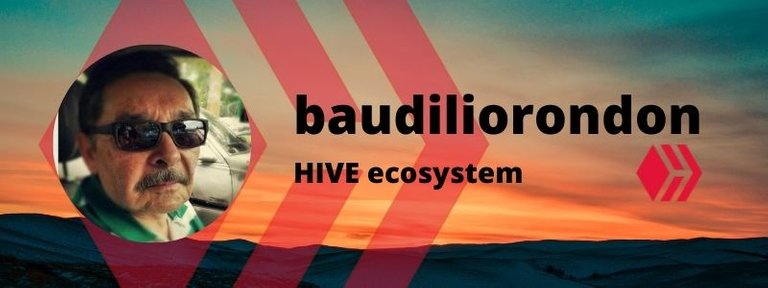
🔼 Banner y footer hecho en / Banner and footer made in canva.
🔽 Texto traducido en / Text translated in Deepl.
🔼 Separador hecho en / Separador made in canva.